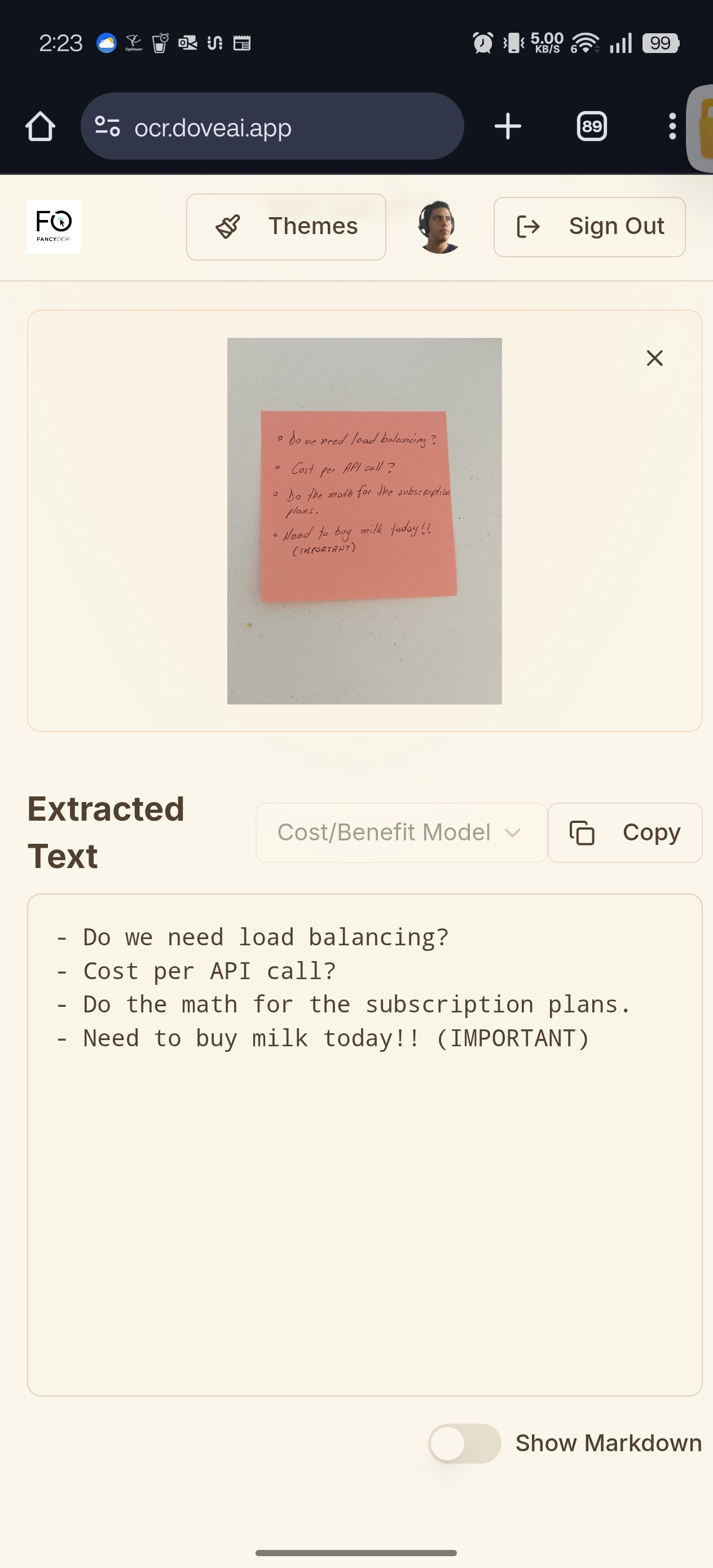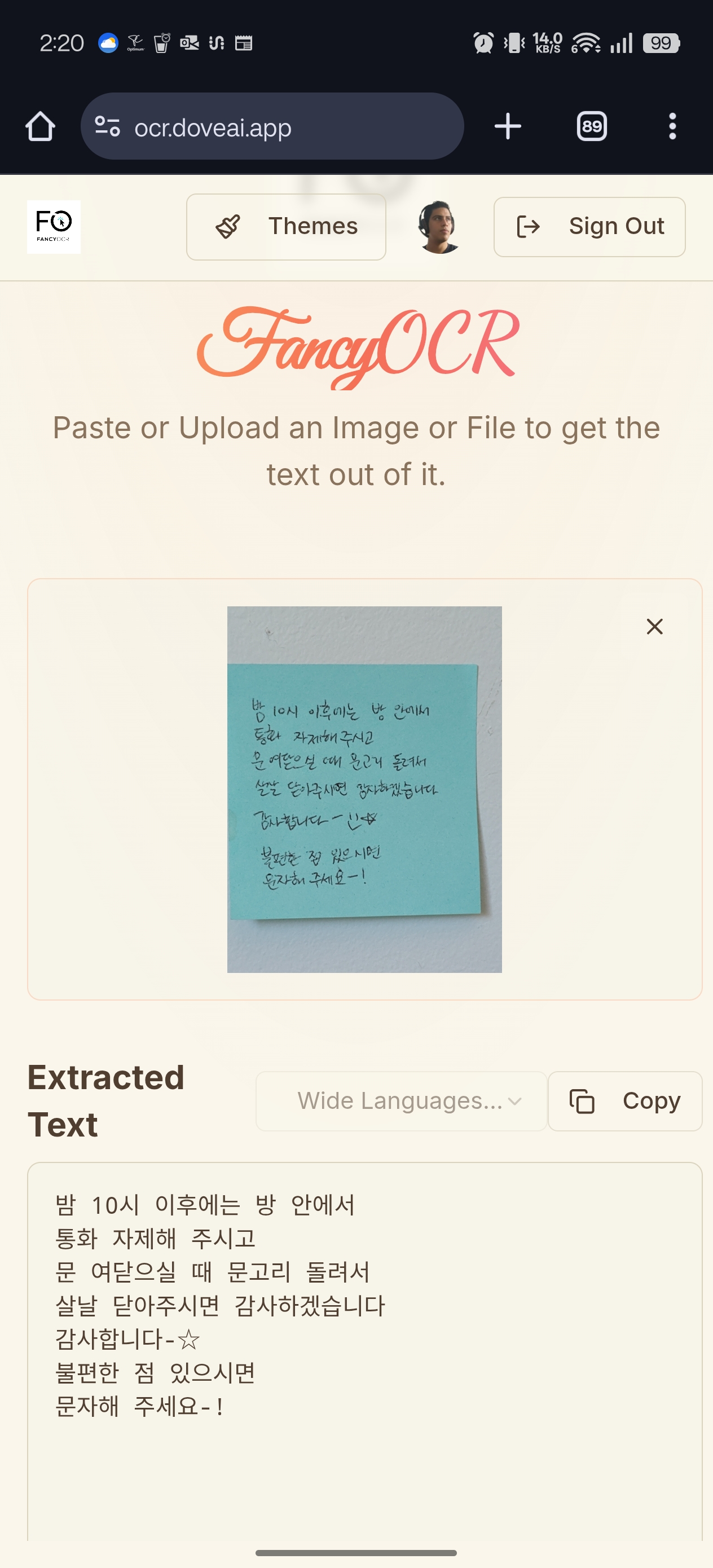See how AI-powered Handwritten Text Recognition (HTR) deciphers complex notes, transforming scattered thoughts into structured digital text.

Our standard model excels at recognizing and transcribing handwritten text in Latin-based alphabets. It accurately captures the content, preserving the original intent and structure of your notes, lists, and ideas.

For complex, non-Latin scripts, the Wide Languages Model is essential. It leverages a much larger dataset to accurately interpret diverse character sets like Korean Hangul, ensuring even intricate handwriting is digitized faithfully.
Traditional Optical Character Recognition (OCR) was designed for a world of clean, printed fonts. It scans images for pixels and matches them to known characters. While effective for perfect documents, it fails when faced with the variability of human handwriting.
Handwritten Text Recognition (HTR) is different. Powered by advanced AI, it doesn't just see pixels—it understands context, patterns, and the nuances of script. It learns from vast amounts of data to recognize the countless ways a letter can be written, making it possible to accurately digitize notes, letters, and historical documents that were previously locked away in analog form. This is the future of turning your handwriting into usable data.